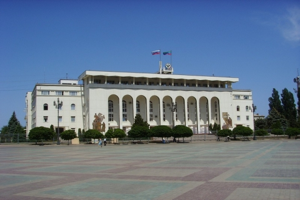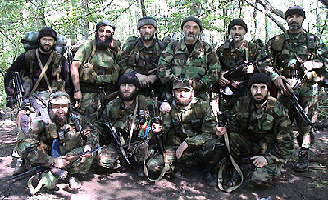CACI Analyst, April 3, 2013
Dagestan: Local Leader To Select Format For Gubernatorial Elections
by Kevin Daniel Leahy (04/03/2013 issue of the CACI Analyst)
In light of the mass anti-government street protests witnessed by Moscow in late 2011, Russia’s then-President, Dmitri Medvedev, proposed introducing a system whereby regional governors would be selected by way of popular elections. This proposal raised the specter of direct gubernatorial elections taking place in regional jurisdictions throughout the Russian Federation for the first time since 2004. But while there is a possibility that eligible voters in many of these regions will henceforth be allowed to cast their ballots for the candidate of their choosing, it seems that voters in the North Caucasus, specifically those in the republic of Dagestan, will be denied this opportunity.

CACI Analyst, February 20, 2013
Dagestan's Commission For Rehabilitation Of Rebel Fighters: A Failed Experiment?
by Huseyn Aliyev (the 02/20/2013 issue of the CACI Analyst)
The escalation of insurgency-related violence in Dagestan, in conjunction with the authorities’ inability to deal with the increase in militant attacks, led the Dagestani government to establish in 2010 a commission aimed at rehabilitating rebel fighters. Yet, despite scores of processed applications and a number of successful cases claimed by the commission, conflict-related violence continues to increase in Dagestan. Created by the government of Dagestan as the first effort to implement a “soft” form of counter-insurgency, the rehabilitation commission nevertheless lacks legal and social mechanisms to ensure fair treatment of former militants and to re-settle them in civilian life.

RUSSIAN ARMY CEASES CONSCRIPTION IN DAGESTAN
Russian Army Ceases Conscription in Dagestan
by Emil Souleimanov (11/28/2012 issue of the CACI Analyst)
In recent years, Moscow has considerably been reducing the share of conscripts to the Russian Army from the republics of the North Caucasus, particularly from Dagestan. Military service remains popular in Dagestan, in stark contrast to much of the Russian Federation. Yet, the changing draft policy appear to be motivated by the perceived difficulty of North Caucasians to conform with the hierarchic traditions of the Russian army, and by the dangers of providing young Dagestanis with military training in the context of the North Caucasus insurgency, which is increasingly centered on Dagestan.




